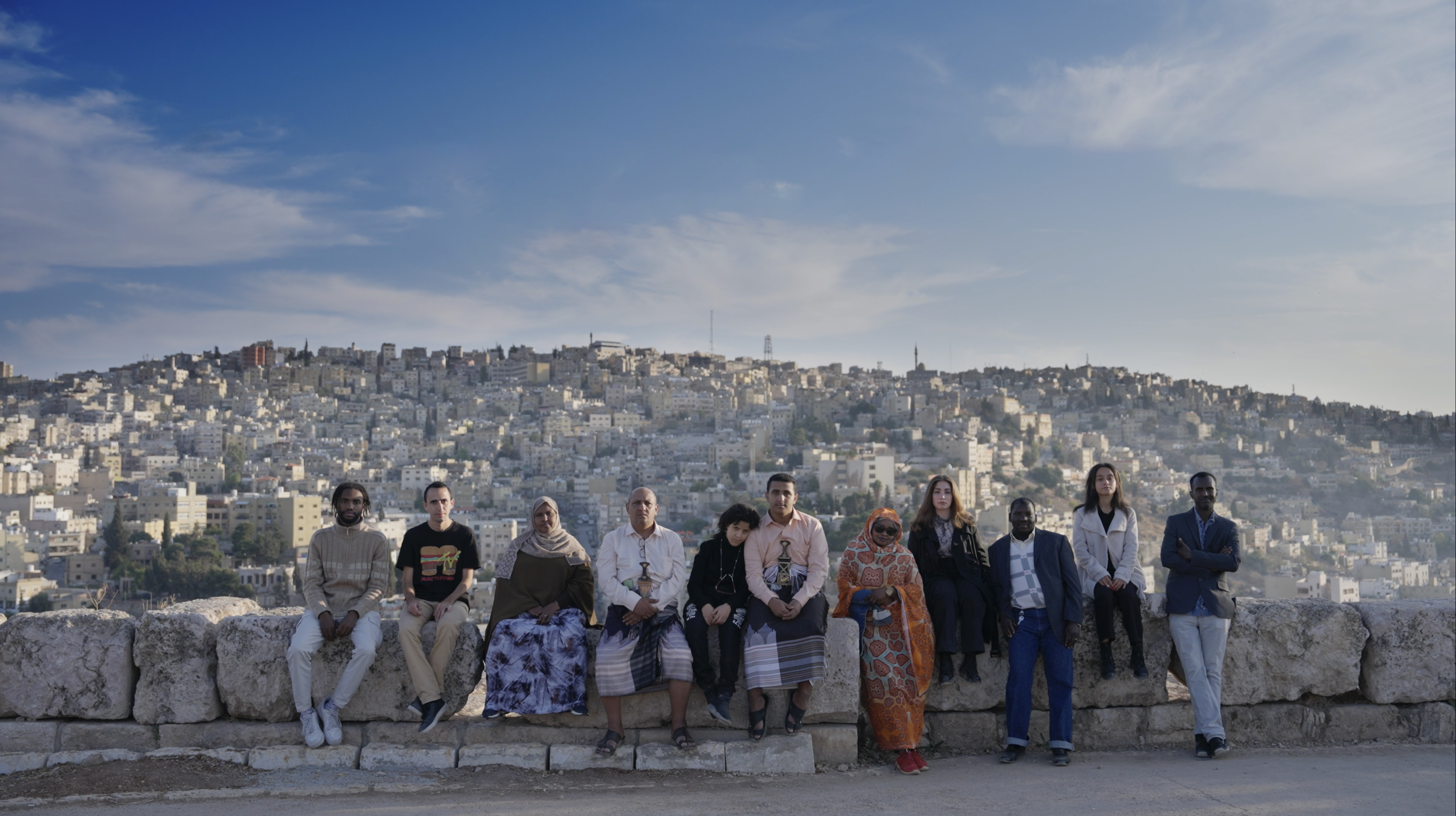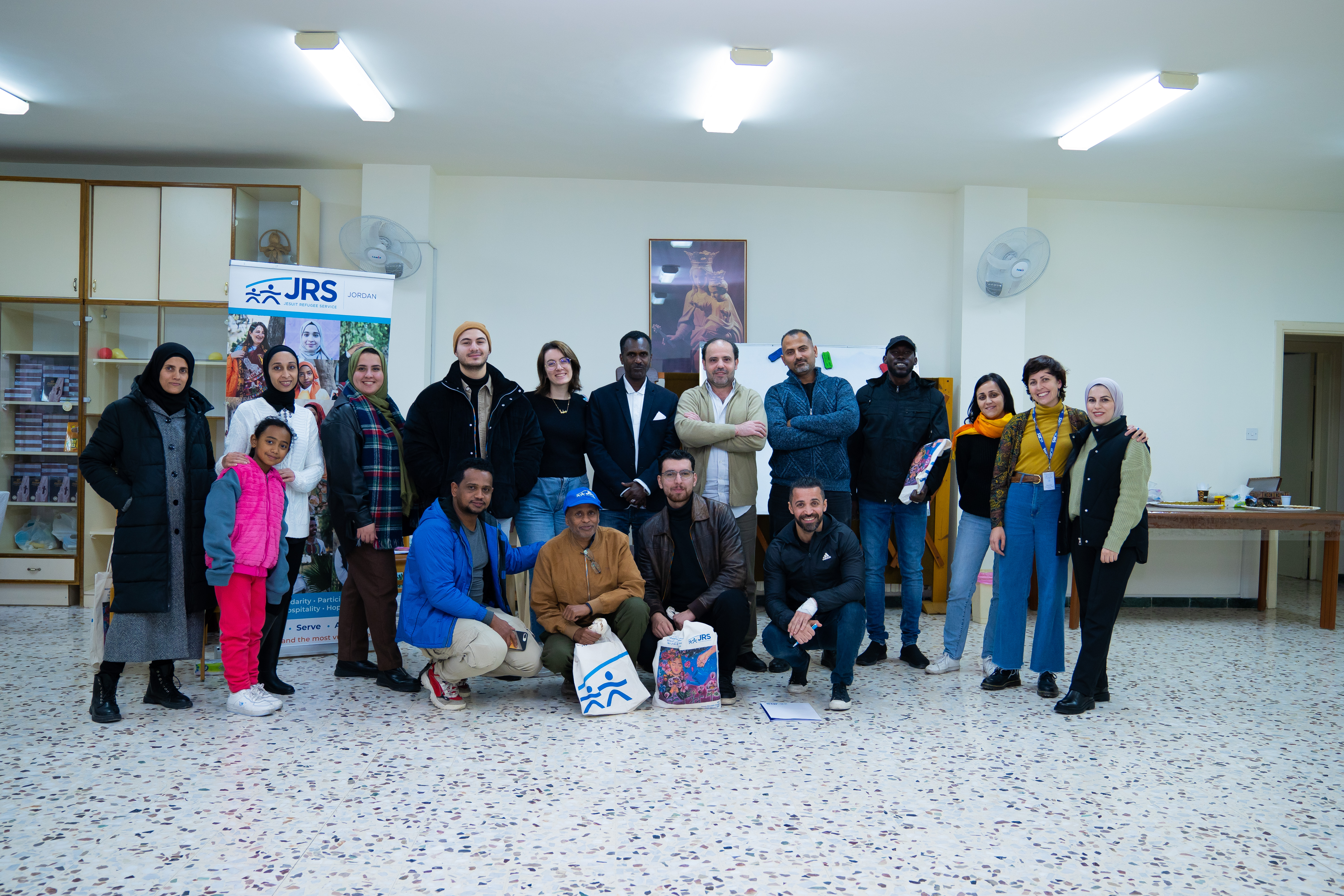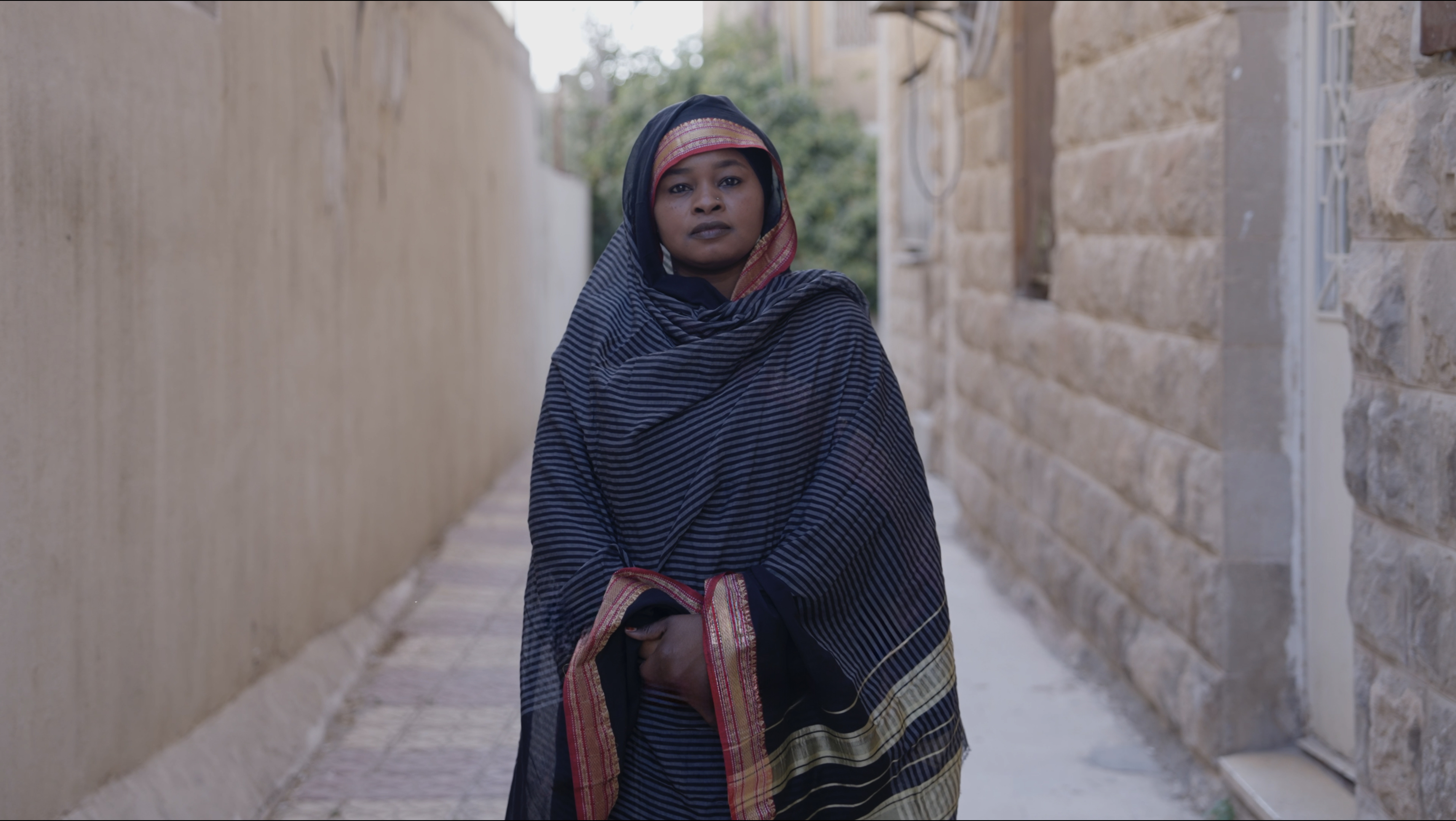
Members of the JRS Refugee Committee committee recently completed a short documentary film, “A Journey of Hope,” to promote awareness about the diversity of refugees in Jordan and to use as an advocacy tool for equal rights. Photo: Ahmed Ryashi
In 2017, Shehab first arrived in Jordan, fleeing instability and violence in Yemen. Though generous financial support allowed his children to join him in 2020, a 2019 policy change prevented them from registering as refugees. To this day, they are barred from accessing essential health and education services available to registered refugees.
Shehab’s family is not alone. Many refugees in Jordan face significant challenges due to unfair laws and conditions. As a Quaker organization, AFSC’s work with migrants is driven by our commitment to human dignity and the belief that all people should have the resources they need to thrive. That’s why AFSC is now supporting refugees in their efforts to address these barriers through the JRS Refugee Committee.
Jordan has a long history of hosting refugees, from Chechens in the 19th century to Palestinians in 1948 and 1967, and more recently, Syrians fleeing the crisis in 2011. Today, Jordan’s refugee population is primarily composed of Syrians, alongside large communities of Iraqi, Yemeni, Sudanese, Somali, and Eritrean refugees.
Despite this history, many refugees face severe restrictions. Most refugees officially registered with UNHCR (which doesn’t include Palestinians) cannot legally work while maintaining their refugee status, except Syrians. The 2019 halt on refugee registration has left many new arrivals without formal documentation, limiting access to essential services and increasing the risk of arrest and deportation.
Minority refugees, especially those from Iraq, Yemen, Sudan, Somalia, and Eritrea, face even greater barriers—higher rates of arrest and deportation, increased education costs, poorer employment prospects, and greater vulnerability to employer exploitation because of their lack of legal work status.
After the fall of the Syrian regime in December 2024, the situation in Jordan has become more complex, raising questions of whether Syrian refugees would be able to return, and if they even wish to do so.

Members of the JRS Refugee Committee. Photo: Silvia Mazzocchin/JRS Jordan
Since 2024, AFSC has supported the JRS Refugee Committee, established by Jesuit Refugee Service (JRS) Jordan to improve conditions for minority refugees and ensure equal support regardless of nationality. Over the past three years, the committee has brought together representatives from Sudan, Somalia, Syria, Yemen, Eritrea, and Iraq—including unregistered refugees—reflecting diverse ages, backgrounds, and family statuses.
The committee now has 19 active members, each serving as a focal point within their community. They disseminate information for refugees and gather community input. Through advocacy, they amplify refugees' voices and influence decision-makers. And they have also created a safe and supportive space where members find healing from the trauma of war and displacement through mutual encouragement and compassion.
Over the past year, AFSC and JRS Jordan have connected the refugee committee with over 30 humanitarian organizations in Jordan. Through monthly meetings, members educate representatives from these organizations about the struggles they face in health access, legal issues, education and other areas and make recommendations to address these challenges. These have included improving transparency for medical services, unlinking health centers from specific nationalities, and ensuring legal protection for refugee women facing domestic abuse. The committee members recently had a dialogue with UNHCR’s legal and protection unit about improving communication between staff and refugees. To support these advocacy efforts, AFSC and JRS have organized trainings for the committee on conflict resolution, developing advocacy strategies, and improving public speaking skills.
Recently, committee members completed a short documentary film, “A Journey of Hope,” to promote awareness about the diversity of refugees in Jordan and to use as an advocacy tool for equal rights. The film is a refugee-led production, capturing stories from refugees from six different nationalities who share their challenges, successes, and hopes. The film also explores how they contribute to their communities—from joining a church choir to starting a Sudanese craft business to establishing a language center to teach the indigenous Fur language from Sudan.
Beyond these efforts, the committee also coordinates cultural celebration events. The annual summer event “JRS Festival of Encounter” celebrates refugee communities and features traditional dancing, music, food, and refugee-made goods. This year, they’re organizing multiple events, each spotlighting a different culture. These events will give local Jordanians opportunities to appreciate the country’s cultural diversity and for refugee communities to learn from each other.
When asked about their experience, members emphasize the profound personal impact they’ve experienced as well as the power they have found in collective action. Here’s what they had to say.
“Thank you for trying to make the world an easy place to live, thank you for the safe space, for strengthening, empowerment, and trust.” – S., unregistered refugee from Yemen
“We fought for refugees this year, not just with words, but with knowledge. Statistics, laws, logistics—we turned uncertainty into something tangible, something undeniable. We took what was once a muddy, unstable marshland and transformed it into a road. Solid. Industrialized. Unshakable.” –M., refugee from Iraq
Despite regional challenges, AFSC remains committed to working closely with refugees to strengthen this committee and its efforts. By bridging divides among nationalities and amplifying diverse voices, they are working toward systemic changes to improve the lives of all refugees in Jordan and their host communities.
To learn more about AFSC’s migration work with the committee and across Jordan, please visit our program page. Additionally, AFSC welcomes you to view the collaborative documentary film “A Journey of Hope.”

